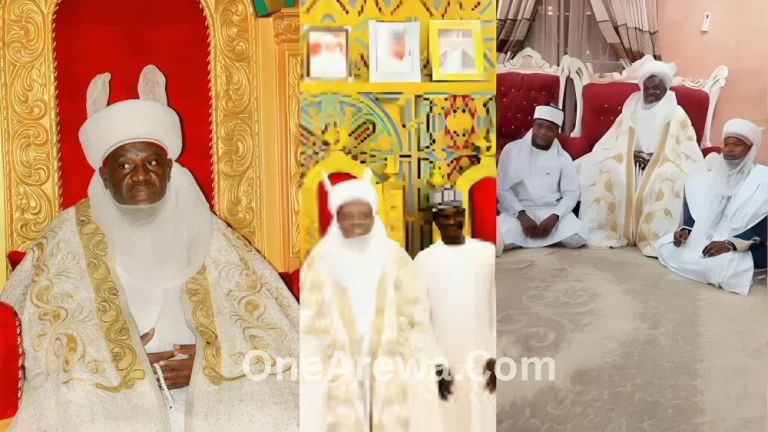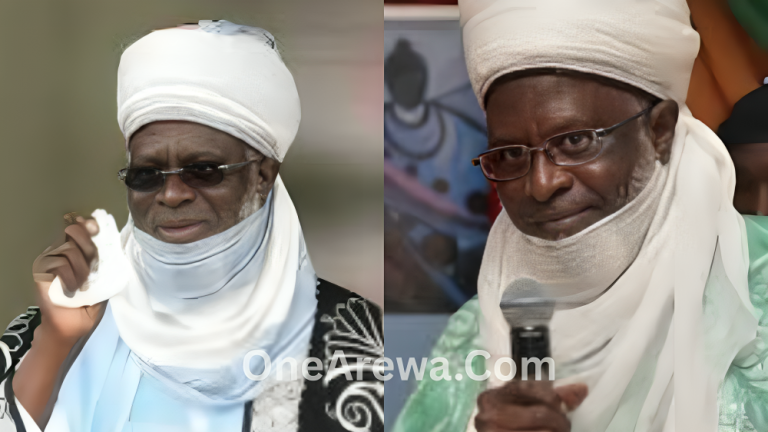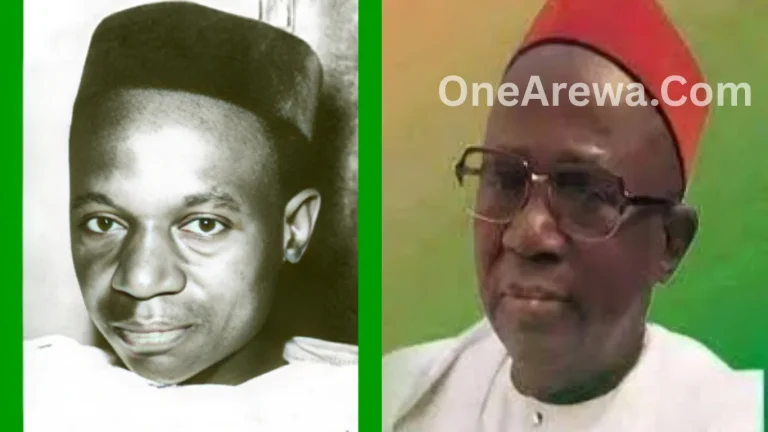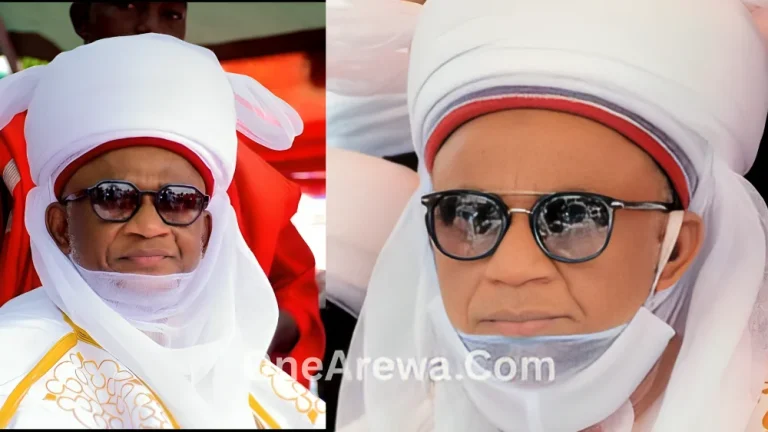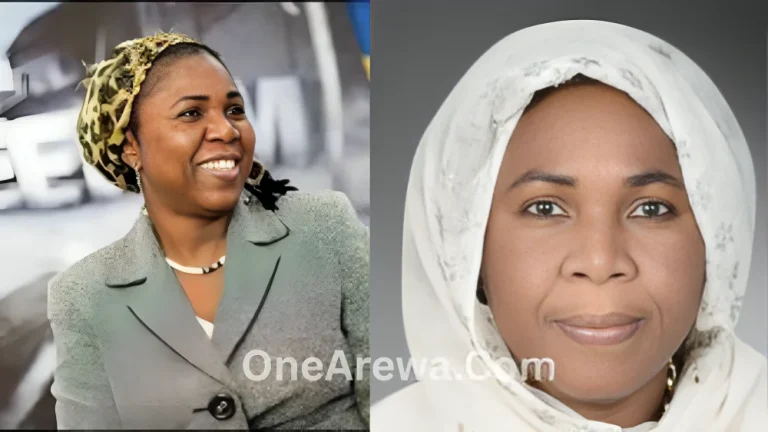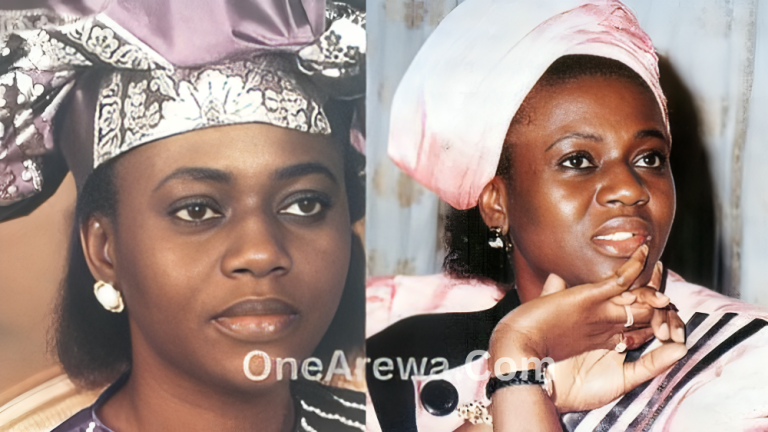Sheikh Ibrahim Khaleel: The Fearless Islamic Scholar and Political Voice of the North
Sheikh Ibrahim Khaleel: The Fearless Islamic Scholar and Political Voice of the North
Sheikh Ibrahim Khaleel, popularly known as a fearless Islamic scholar and reformist voice from Northern Nigeria, was born in Kano State and rose to national prominence as an independent-minded cleric respected across different Islamic sects.
In November 2007, he was appointed Chairman of the Kano State Council of Ulama, where he became known for his progressive and bold religious rulings, including defending the right of a woman to lead prayers in the U.S.
In 2005, I advocated for fair treatment of women in Islam and opposed exploitative economic practices.
Despite earlier criticisms of clerics joining politics in 2006, he ventured into politics by joining the African Democratic Congress (ADC) in February 2022 after defecting from the APC, citing a desire to bring reform, justice, and competent governance.
In October 2021, he was controversially suspended from the Council of Ulama by a faction that accused him of politicizing religion, a move that sparked wide debate and public support in his favor.
He contested for Governor of Kano State in 2023 under the ADC, running on a platform of justice, merit, education, health, and youth empowerment.
Though he lost the election, his political journey left a legacy of courage and reform, making Sheikh Ibrahim Khaleel one of the most influential Islamic scholars and political voices in Northern Nigeria.
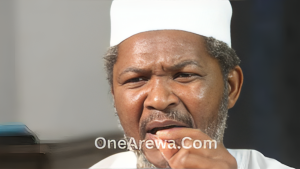
Sheikh Ibrahim Khaleel Wiki Profile
| Category | Details |
|---|---|
| Full Name | Sheikh Ibrahim Khaleel |
| Place of Origin | Kano State, Nigeria |
| Date of Birth | Not publicly disclosed |
| Religious Role | Islamic Scholar, Former Chairman – Kano State Council of Ulama |
| Tenure as Chairman | November 24, 2007 – October 2021 |
| Notable Fatwa (2005) | Supported the right of a woman to lead mixed-gender Muslim prayer |
| Public Stand (2006) | Opposed clerics using religion for political gains |
| Reform Advocacy | Women’s rights in marriage, fair market practices, and modernizing the Maulid |
| Suspension (2021) | Removed as Chairman by a faction accusing him of politicization |
| Political Entry | Joined the African Democratic Congress (ADC) in February 2022 |
| Gubernatorial Bid | ADC Consensus Candidate for Kano 2023 Governorship Election |
| Campaign Pillars | Justice, Meritocracy, Freedom Protection, Expert Consultation |
| Legacy | Symbol of independent Islamic scholarship and faith-informed politics |
| Public Image | Bold, reformist, anti-establishment, scholar-politician |
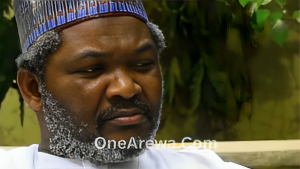
Sheikh Ibrahim Khaleel’s Early Life & Rise to Scholarly Leadership
Sheikh Ibrahim Khaleel was born in Kano State, northern Nigeria (exact date of birth remains publicly undisclosed) and established a reputation early on as a neutral, unifying Islamic scholar, respected across diverse sects for his calm yet firm demeanor.
After years of impactful scholarship and community engagement, he ascended to prominence when he was appointed Chairman of the Kano State Council of Ulama on 24 November 2007, marking a major milestone in his career.
Check Out: Ado Bayero: The Legendary Emir Who Transformed Kano’s History
Sheikh Ibrahim Khaleel Fatwas & Religious Influence
Sheikh Ibrahim Khaleel became widely known for his bold, reform-minded fatwas and his commitment to speaking truth to power, even when unpopular.
In 2005, he defended a controversial event in the United States where a woman led a mixed-gender Muslim prayer, saying that Islam does not prohibit a woman from leading prayer if she is knowledgeable, an opinion that drew both praise and criticism from within Nigeria and beyond.
In 2006, he publicly cautioned Islamic preachers against turning religion into a tool for political gain, emphasizing that the pulpit should serve spiritual, not partisan, purposes.
Throughout his tenure as Chairman of the Kano State Council of Ulama (from November 2007), Sheikh Khaleel regularly issued fatwas on pressing social and economic issues.
He advocated for price regulation in markets, calling on traders to uphold fairness rather than maximizing profit at the expense of the poor.
He also spoke strongly about women’s rights in marriage, arguing that many divorce cases stemmed from the failure to implement proper Islamic marriage contracts and respect women’s roles.
Sheikh Khaleel also encouraged a modern, knowledge-driven approach to religious celebrations, suggesting that events like Maulid (the Prophet’s birthday) should be restructured into educational seminars where scholars and professionals teach Islamic values, instead of relying on traditional ritualistic displays.
His positions consistently blended Islamic principles with calls for justice, equity, and reform in Northern Nigerian society.
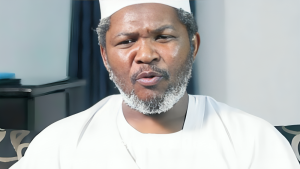
Sheikh Ibrahim Khaleel Clash with Authorities & Suspension in 2021
In October 2021, a powerful faction within the Kano State Council of Ulama, comprising clerics from the Izala, Tijjaniyya, and Kadiriyya sects, moved to impeach and suspend Sheikh Ibrahim Khaleel, accusing him of politicizing the Council, engaging in continual face-offs with successive governors (Shekarau, Kwankwaso, Ganduje), and using the religious platform to advance his political ambitions.
They installed Prof. Saleh of Pakistan as acting chairman, citing concerns over the exclusion of certain sects and the sidelining of Council members.
However, this move sparked a major backlash: a broad coalition of Ulama from various Islamic organizations denounced the impeachment, stating it was carried out without proper consultation and risked fracturing Islamic unity in the state.
The suspension highlighted deep internal divisions between those accusing Khaleel of mixing religion with politics and those defending his scholarly independence and principled stance.
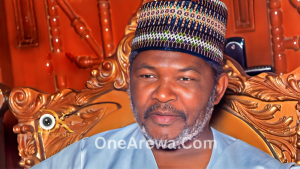
Sheikh Ibrahim Khaleel: Entry into Politics
In February 2022, Sheikh Ibrahim Khaleel officially defected from the All Progressives Congress (APC) and joined the African Democratic Congress (ADC), alongside respected academics like Dr Saidu Ahmad Dukawa and eight other professors, citing his aim to “rescue Kano State from misgovernance, drug abuse, and begging”.
In August 2022, he was presented with the ADC’s ₦10 million gubernatorial form and emerged as the party’s consensus candidate for the 2023 Kano State governorship election, with the national leadership approving his nomination in Kano.
During his campaign, he laid out a leadership philosophy built on four pillars: justice, meritocracy, freedom protection, and expert consultation, and prioritized areas like education, healthcare, the economy, agriculture, anti-corruption, and security.
He confidently positioned himself against prominent rivals, declaring in January 2023 that Kano people were “tired” of former governors Shekarau, Kwankwaso, and Ganduje, whom he labeled “politically weak”.
Though he was unsuccessful in the 2023 election, his campaign underscored a groundbreaking moment: a respected Islamic scholar stepping into mainstream politics without invoking religious influence, inspiring a new wave of faith-informed political engagement.
What Makes Sheikh Ibrahim Khaleel Fearless
Unyielding Independence: Freely questioned political decisions and clergy involvement with government, even when it risked his position.
Bold Rulings: Took progressive stands on gender roles and economics within Islam.
Faith-Based Governance: Embodies a model where scholarship and civic responsibility reinforce each other, not compete.
FAQs
1. Who is Sheikh Ibrahim Khaleel?
Sheikh Ibrahim Khaleel is a renowned Islamic scholar from Kano State, known for his progressive fatwas, bold religious reforms, and transition into mainstream politics. He served as Chairman of the Kano State Council of Ulama from 2007 to 2021.
2. What made Sheikh Ibrahim Khaleel different from other Islamic scholars in Nigeria?
He fearlessly challenged conservative norms, supported women’s rights, and called for modern interpretations of Islamic practices. He openly criticized political elites and refused to allow religious platforms to be used for political manipulation.
3. Why was Sheikh Khaleel suspended in 2021?
In October 2021, he was suspended by a faction of the Kano Ulama Council, who accused him of mixing religion with politics and using the council to advance his ambitions. However, many clerics and Islamic groups defended him, calling the suspension unjust and politically motivated.
4. What role did Sheikh Khaleel play in Nigerian politics?
In February 2022, he joined the African Democratic Congress (ADC) and became the party’s consensus governorship candidate for the 2023 Kano State election. His platform focused on justice, education, anti-corruption, and security, with a non-sectarian, reformist approach.
5. Did Sheikh Ibrahim Khaleel win the 2023 election?
No, he did not win, but his candidacy was historic, showing that a respected Islamic scholar could enter politics without abusing religion or clerical power. He gained national attention for offering a fresh, principled alternative in Northern Nigeria.
6. What are some of his most famous fatwas or views?
-
2005: Defended women leading mixed-gender prayers
-
2006: Opposed politicization of the pulpit
-
Advocated for marital fairness, economic justice, and modern Islamic education during celebrations like the Maulid
7. What is Sheikh Khaleel’s legacy?
He is remembered as a fearless reformer who bridged the worlds of religious scholarship and civic leadership. His legacy lies in empowering younger scholars and citizens to rethink the role of faith in governance and social justice.
8. Is anything known about his personal life?
Very little is publicly known about Sheikh Khaleel’s family or private life. He has maintained a strong separation between his public roles and personal affairs.
Check Out: Alhaji Mohammed Awwal Ibrahim: From Governor to Emir of Suleja – A Full Biography
In Conclusion
Sheikh Ibrahim Khaleel stands as a bold and transformative figure in Northern Nigeria, one who redefined what it means to be a scholar, a reformer, and a political voice.
His fearless advocacy for justice, gender equity, religious moderation, and political accountability set him apart in both the religious and political arenas.
From his pioneering fatwas and reformist sermons to his courageous entry into politics, he challenged the status quo and offered a new vision for Islamic leadership in a modern, democratic society.
Though he faced suspension, criticism, and electoral defeat, Sheikh Khaleel remained steadfast, refusing to compromise his principles.
His legacy is not only in the positions he held but in the questions he raised, the systems he challenged, and the younger voices he inspired.
As a man who dared to bridge the pulpit and the podium, he will be remembered as a symbol of fearless faith, intellectual independence, and civic courage in the history of Northern Nigeria.
Check Out: The Legacy of Muhammad Rumfa: Personal Life, Power, and Reform in Ancient Kano
Check Out: Queen Sarraounia Mangou: The African Warrior Queen Who Defeated the French
Check Out: Muhammad Yunfa: The King Who Tried to Stop Usman ɗan Fodio – And Lost a Kingdom


